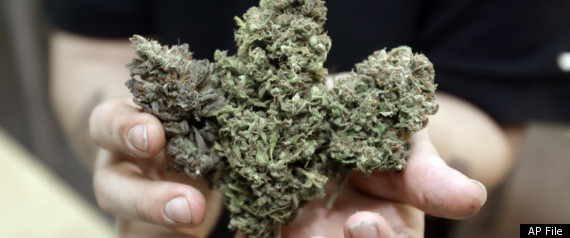Medical Marijuana Banks? Colorado Lawmakers Propose Financial Co-Ops For MMJ Businesses
Replies to This Discussion
-
Permalink Reply by Maria De Wind on January 27, 2012 at 11:24pm
-
-
"Destroying the New World Order"
THANK YOU FOR SUPPORTING THE SITE!
Latest Activity
- Top News
- ·
- Everything
Orwell - Football, Beer & Gambling
"kalau kamu cari tentang trik dan tips main slot online biar gampang menang, coba cek di situs…"
14 hours ago
I, Pet Goat VI by - Seymour Studios | I, Pet Goat 6
I, Pet Goat VI by - Seymour Studios | I, Pet Goat 6It's time for great JihadI presented the events in the Middle East as an animated short film based on the ...
yesterday
Official Trailer NOVA '78 directed by Aaron Brookner and Rodrigo Areias
NOVA '78 is a documentary about New York City's 1978 Nova Convention, the legendary counterculture gathering featuring William S. Burroughs, Patti Smith, Fra...
Sunday
Peter Sellers - The Party (opening scene)
HQ HD "Does that include television sir ?" ... is still the best trolling paradigm in a movie.Support this channel: https://www.patreon.com/MusicPoints#Pet...
Friday
"Cheeki kea, I pray that the insanity doesn't deepen and there's been an attack by some 18…"
Feb 18
Disgraced Former CNN Anchor Don Lemon Arrested
No longer an employed journalist, Don Lemon had been seen with far left agitator, Nekima Levy…See More
Feb 18
"Good poem for these times. I think it's only going to get worse though as we enter into the…"
Feb 17
© 2026 Created by truth.
Powered by
![]()

In September of 2011, the last bank in Colorado to openly work with medical marijuana businessesclosed those accounts and shut its doors to working with dispensaries due to increased federal pressure.
This left Colorado dispensaries between a rock and a hard place -- state law requires medical marijuana businesses to keep track of their transactions, but record keeping becomes much more difficult without banks working with them, the Daily Camera reported in October.
Now, cut off from the traditional banking system, there appears to be some hope for Colorado's dispensaries. Democrat Sen. Pat Steadman along with Republican Rep. Tom Massey are co-sponsoring Senate Bill 75 which would allow medical marijuana businesses to create financial cooperatives that would be regulated similarly to credit unions, except that they would be insured by by "non-federally backed" insurance policies, according to The Daily.
Robert Friechtel, director of the Medical Marijuana Business Exchange, told The Daily that he estimates nearly half of Colorado's 700 disp... lost their bank accounts in September of 2011. Friechtel went on to tell the The Daily, "Forcing dispensaries to go cash-only is crazy. How can owners safely and successfully run their businesses without any place to deposit money?"
"Senate Bill 75 is a positive step forward for an industry that is crying out for sensible banking solutions," Brian Vicente of Sensible Colorado, a marijuana advocacy group, told The Huffington Post. "Colorado's tightly regulated medical marijuana businesses need banking that allows them to operate like other state licensed businesses."
In mid-2011, the Department of Justice began threatening that it was going to begin to raid and prosecute medical pot shops even in states where the drug is legal, The Huffington Post reported. By the end of 2011, hundreds of marijuana shops in California were forced to shut down. Then just weeks ago, federal officials began the most aggressive marijuana law-enforcement action they have ever pursued in Colorado cracking down on dispensaries that are within 1,000 feet of schools. This kind of Federal pressure scared off more and more banks that were at one point will to work with these small businesses operating in a strange legal gap where state law ends and federal law begins.
But banking problems have been brewing for some time. Some banks, especially the big banks, began withdrawing accounts from MMJ businesses back in early 2007 or 2008 when the U.S. Drug Enforcement Administration warned big banks that they could face potential legal liabilities if they do business with dispensaries, Reuters reported in June.
Sue Harank, co-owner of Denver's Alpine Herbal Wellness, said that finding a bank was a "nightmare." She opened her shop in 2010 and during the following six months two banks and a credit union closed her accounts.
If a new medical marijuana financial co-op could exist, Steadman told The Denver Post that it could help with regulation, saying, "It's in everybody's interest that these people don't have piles of cash lying around... and, instead, there's a paper trail."
Steadman also said that he thinks that the co-op could face federal pressures, but he remained optimistic, telling Westword: